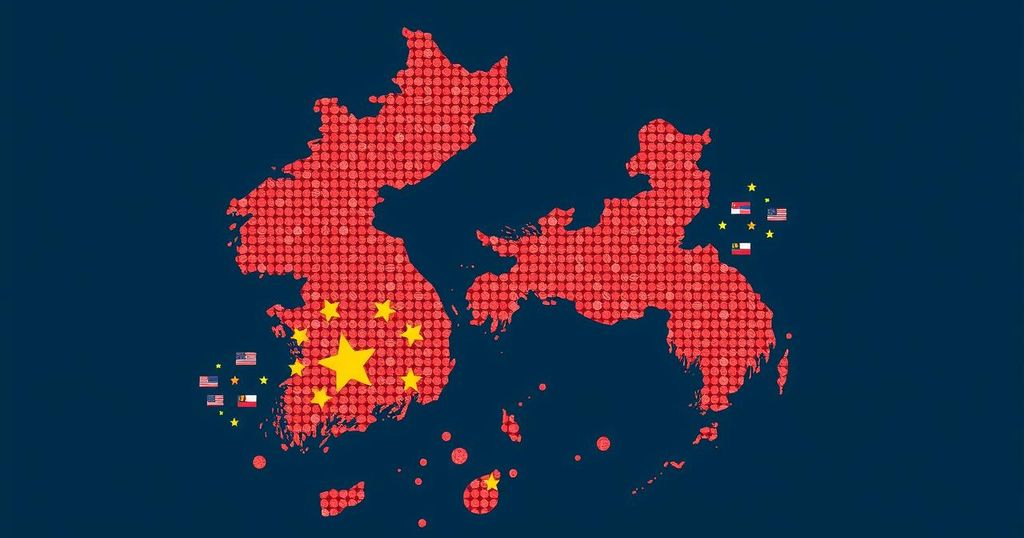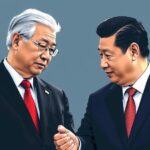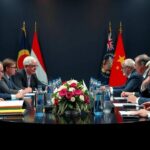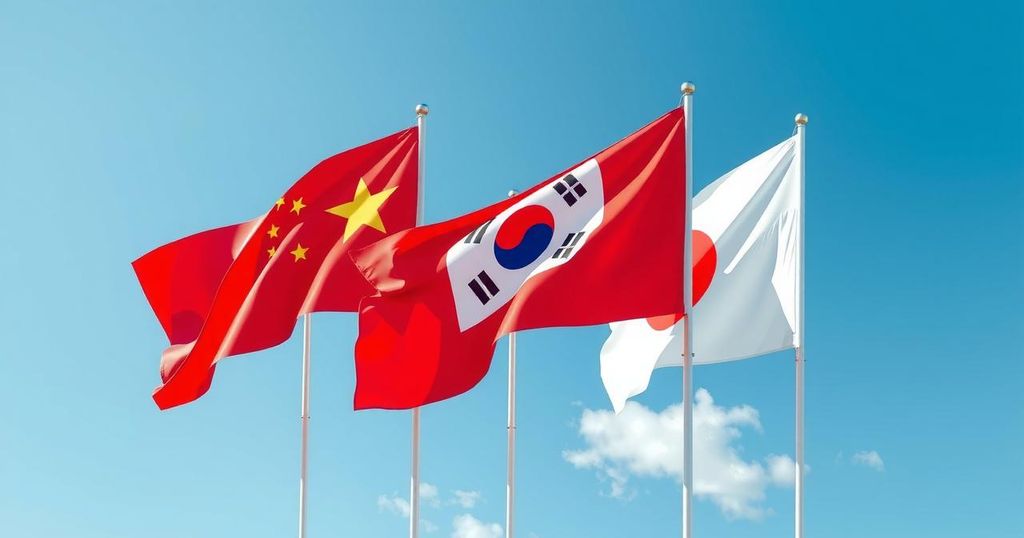Politics
ASIA, ASIA - PACIFIC ECONOMIC COOPERATION, ASIA CENTRE, BIDEN ADMINISTRATION, CENTRE, DONALD TRUMP, ENERGY INFRASTRUCTURE, FOREIGN POLICY, GEOPOLITICS, HARVARD UNIVERSITY, INTERNATIONAL RELATIONS, JAPAN, JOE BIDEN, LEE SEONG - HYON, MILITARY DRILLS, NORTH AMERICA, PERU, SC, SOUTH AMERICA, UNITED STATES, WHITE HOUSE, XI, XI JINPING
Omar El-Sharif
Xi Jinping’s Warning Signals China’s Diplomatic Challenges on Korean Peninsula
President Xi Jinping has expressed significant concerns regarding rising instability in the Korean peninsula, emphasizing China’s national security interests amid escalating tensions and North Korea’s nuclear threats. His warning also highlights the challenges China faces in managing relationships with North Korea and Russia while navigating a broader geopolitical landscape involving U.S., Japan, and South Korea alliances.
Recently, Chinese President Xi Jinping issued a significant warning regarding increased instability on the Korean peninsula, marking a notable shift in Beijing’s approach to the region. His comments reflect growing concerns over geopolitical turbulence, particularly amid speculations surrounding former U.S. President Donald Trump’s potential return to office. At the Asia-Pacific Economic Cooperation (APEC) summit in Lima, Peru, Xi emphasized that “China does not allow conflict and turmoil to happen on the Korean peninsula” and that it will protect its strategic security interests. This statement underscores China’s unease, as escalating tensions and North Korea’s nuclear provocations render the peninsula increasingly volatile.
Moreover, the geopolitical landscape has become more complex, with China facing pressure to manage ties with both Pyongyang and Moscow. In light of North Korea’s involvement in the war in Ukraine, observers suggest that China is striving to present itself as a stabilizing force while simultaneously balancing its relationships in a shifting alliance featuring the United States, Japan, and South Korea. Lee Seong-hyon, a visiting scholar at Harvard University’s Asia Centre, pointed out that Xi’s warning reflects an acknowledgment of the potential threats to China’s national interests, carrying significant strategic implications in the context of evolving regional dynamics. He observed, “Xi underscores Beijing’s dual objectives: maintaining regional stability and reaffirming its central role in shaping the unfolding geopolitical situation.”
Overall, Xi’s recent remarks illuminate the intricate challenges facing China in navigating its foreign policy, as several factors converge to create a complicated diplomatic landscape in East Asia.
The Korean peninsula has long been a focal point of geopolitical tension, largely due to North Korea’s nuclear ambitions and its relationship with China and Russia. As the United States strengthens its alliances with South Korea and Japan, regional dynamics have become increasingly complex. China, which views stability on the peninsula as vital to its own security and interests, finds itself in a precarious position, attempting to balance its influence while managing relationships with both its neighbors and global powers. In this context, Xi Jinping’s warning serves as a manifestation of China’s scrutiny toward external interventions that may disrupt the status quo in a historically sensitive region.
In summary, Xi Jinping’s warning about the Korean peninsula reflects China’s apprehension regarding regional stability and the potential implications of shifting geopolitical alliances. With the return of former U.S. President Trump on the horizon, China is under pressure to mediate relations with North Korea and Russia while deflecting international criticism. Xi’s assertion of China as a stabilizing force reveals a dual approach of safeguarding national interests and striving for diplomatic influence in a complicated international framework.
Original Source: www.scmp.com








Post Comment